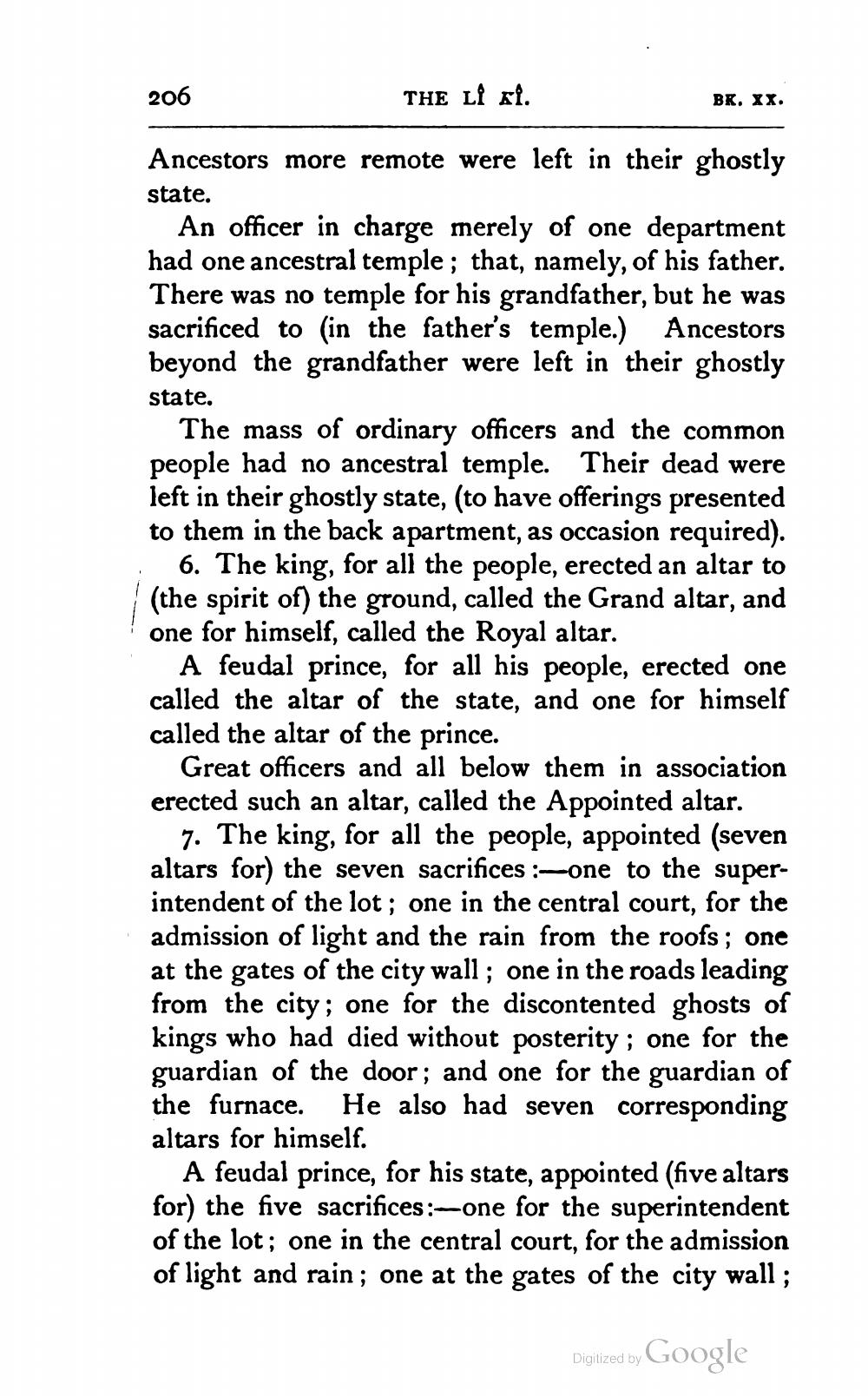________________
206
THE LÊ 61.
BK. XX.
Ancestors more remote were left in their ghostly state.
An officer in charge merely of one department had one ancestral temple ; that, namely, of his father. There was no temple for his grandfather, but he was sacrificed to in the father's temple.) Ancestors beyond the grandfather were left in their ghostly state,
The mass of ordinary officers and the common people had no ancestral temple. Their dead were left in their ghostly state, (to have offerings presented to them in the back apartment, as occasion required).
6. The king, for all the people, erected an altar to (the spirit of) the ground, called the Grand altar, and one for himself, called the Royal altar.
A feudal prince, for all his people, erected one called the altar of the state, and one for himself called the altar of the prince.
Great officers and all below them in association erected such an altar, called the Appointed altar.
7. The king, for all the people, appointed (seven altars for the seven sacrifices :-one to the superintendent of the lot; one in the central court, for the admission of light and the rain from the roofs; one at the gates of the city wall; one in the roads leading from the city; one for the discontented ghosts of kings who had died without posterity ; one for the guardian of the door; and one for the guardian of the furnace. He also had seven corresponding altars for himself.
A feudal prince, for his state, appointed (five altars for) the five sacrifices:-one for the superintendent of the lot; one in the central court, for the admission of light and rain; one at the gates of the city wall ;
Digitized by Google




